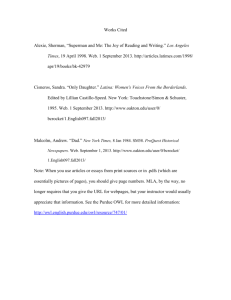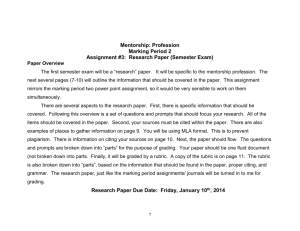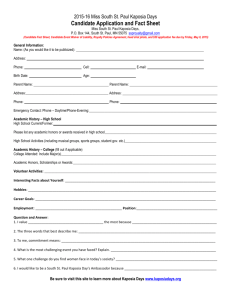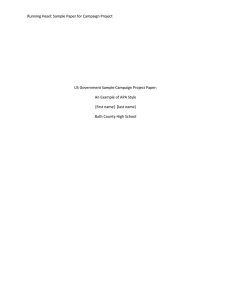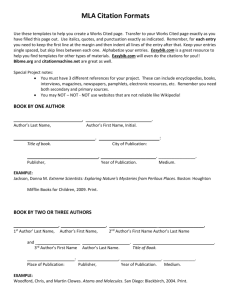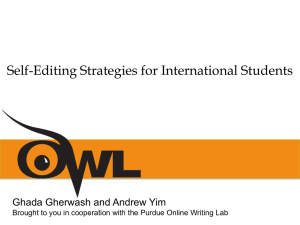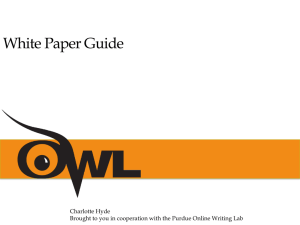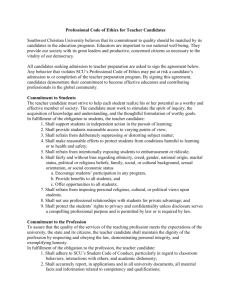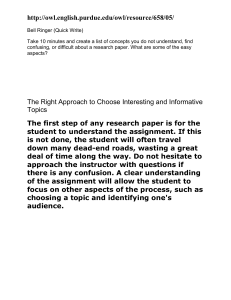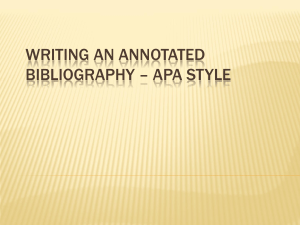Personal Statements for the Health Sciences
advertisement
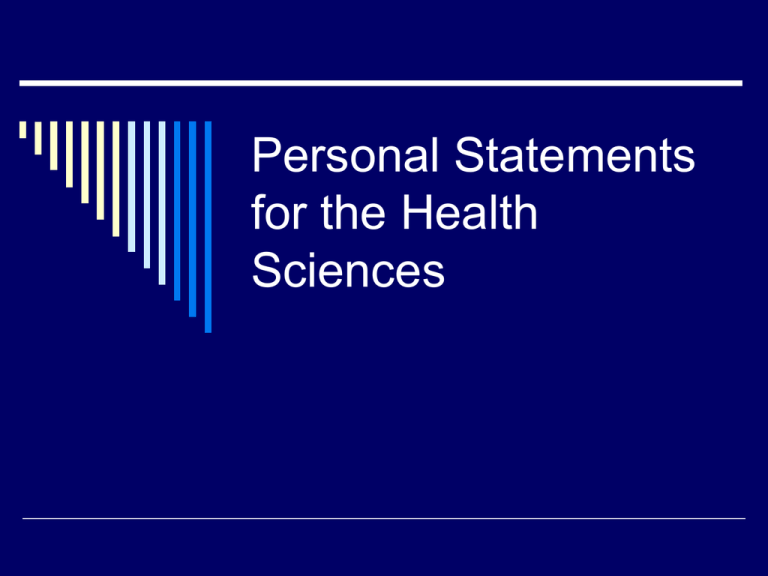
Personal Statements for the Health Sciences Interesting Personal Statements Tell a STORY unique, compelling, honest, positive, down-to-earth Explain WHY you are in love with something that you do SHOW the application reader why or how you will make a good health professional ANSWERS questions posed on application. Are well written: well crafted, polished prose The Basic “Shape”: Opening The goal is to tell your story. . . Begin with: A “hook” (or anecdote) that breathes life into your statement. A summary of experience or statement of your preparedness. A statement that explains why this school, this profession, this faculty mentor, etc. The Basic Shape: Body Elaborates on the opening: Explains your background, education, and/or community; Gives the reasons you became interested in the health profession(s); Describes your academic preparation (including lab or research), any relevant work, and other experiences, i.e., volunteer work. Describes your research concisely. (Leave out minute details-write for a general scientific audience.) Offers a sense of what you gained from these experiences—what qualities have you developed as a student and a professional-in-the-making? The Basic Shape: Conclusion Wrap up with final thoughts and comments: What do you want to do with this degree? Wrap up any dangling ends Make final connections/Tell results Final statement of purpose Makes connection to mission statement Notes specific faculty members of interest The “Secondary” Statement The secondary application essay is about your “fit” in the program/school of your choice: Tailored to each school; Demonstrates particular skills sets; Explains why this program is right for you and/or best enables you to meet your goals. Getting Started: Questions Why you? Why should you be you considered a strong candidate for this program? What experience(s) led you to become interested in a specific area of health-science? Classes, readings, seminars, work, volunteer experiences? Have your failures made you a stronger candidate? (For Candidate who need to explain any gaps or discrepancies in their academic records.) Have you had to overcome any unusual obstacles or hardships? How have these experiences shaped you? What evidence can you provide for your desirable personal characteristics: persistence, determination, good problem-solving skills, or taking the initiative? Examples Why I Love Science: A Personal Statement J. Phys. Chem. A, 2004, 108 (45), pp 9627–9628 “I do not know when I first became interested in science. I think it was a slowly evolving process that started with my love for mathematics in high school, which was transferred to science as I realized the beauty of its application to the understanding of the world around us. I was particularly excited in a freshman chemistry course taught by Bob Rosenberg at Lawrence College, in which I discovered how simple physical models could be used to distill complex phenomena to their essential simplicity. I did not come from a scientific family. On the contrary, my mother was an artist and my father a bookbinder, which exposed me to art at a very early age. However, I have come to realize the close connection between art and science. Both artists and scientists attempt to understand the world by reducing its complexity to a few strokes of a brush or simple concepts such as Coulomb's law. So, perhaps I owe my interest in science to my artist parents.” Examples Telling your story: www.phikappaphi.org “I was going to be late. At this point, the clock on my dashboard all but dared me to think otherwise. Regardless, I kept glancing at the shoulder of the . . . freeway, thinking that if I got out and ran I would just make it in time to set up the event. Since the car was not moving, I decided to go over my speech. It wasn’t much, just a few words jotted down to commemorate the moment: “I would like to welcome all of you to the first orientation session for the Collegiate Med Volunteers. It is our hope that this program will allow you first-hand experience in the medical field while also serving to lighten the load of an overworked county hospital staff…” After the first two sentences, I stopped reading, accelerated two feet forward, and anxiously stuffed the crumpled sheet back into my pocket. The volunteer program that I had been developing for four months was finally coming to fruition.” Resources OWL Purdue: http://owl.english.purdue.edu/owl/resource/642/01/ Cathie Griffin’s Advice: http://www.timesonline.co.uk/tol/life_and_style/education/student/st udent_life/article1473952.ece Sell yourself: http://sciencecareers.sciencemag.org/career_development/previou s_issues/articles/2006_01_06/sell_yourself_guidance_for_devel oping_your_personal_statement_for_graduate_school_applicati ons Sample Personal Statements: http://www.phikappaphi.org/web/Files/sample_personal_statement s.pdf Michelle LaFrance, Ph.D. Additional Resources http://www.wagner.edu/departments/pre_health/statement advice on what to do and include http://www2.ucsc.edu/careers/health/statement.html - the personal statement http://www2.ucsc.edu/careers/health/strategies.html One of the best sources is “Write for Success”; it has sample personal statements and critiques of their strong and weak points by admission officers at 3 medical schools http://www.ltsc.ucsb.edu/health/info_sheets/personal_statement .PDF http://www.cmu.edu/hpp/achieve/pstips.html http://advisingservices.ucdavis.edu/advising/hsa/handouts/writin g_personal_statement_application_health_profession_school.ht ml
